Ireland — land of green hills, strong tea, and entrepreneurs who don’t take no for an answer. You think running a business is hard? Try turning a tiny idea into a billion-dollar empire while competing with giants. That’s exactly what some of Ireland’s most successful business minds did. From Michael O’Leary making flights cheaper than a pint to the Collison brothers revolutionizing online payments, these people didn’t just build companies — they changed industries.
And if you’re serious about business, you know that success isn’t just about big ideas — it’s about understanding what works. That’s where Plerdy comes in. Want to know why your site visitors bounce faster than a bad date? Or why one page sells like crazy while another collects dust? Plerdy’s tools analyze user behavior so you can optimize, tweak, and, let’s be real — sell more.
So, let’s dive into the stories of ten Irish entrepreneurs who built something huge. Lessons, failures, unexpected wins — it’s all here.
Michael O’Leary – The Irish Entrepreneur Who Reinvented Air Travel
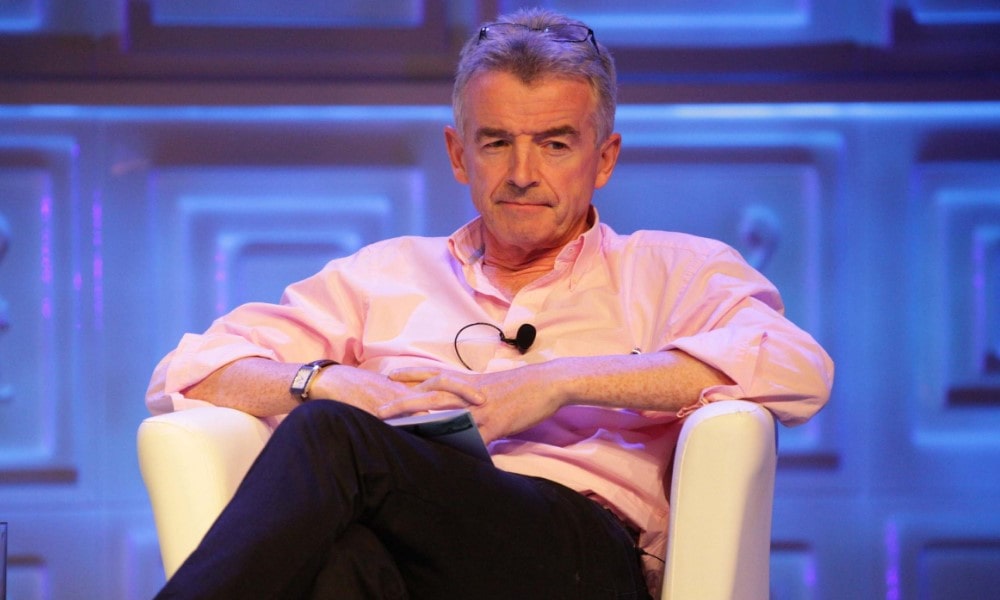
From Accountant to Aviation Leader
Michael O’Leary wasn’t always the loud, fearless businessman we know today. Before he became the face of Ryanair, he was just an Irish accountant crunching numbers at KPMG. But fate had other plans. Enter Tony Ryan — the legendary Irish entrepreneur behind Guinness Peat Aviation. Ryan saw potential in O’Leary’s no-nonsense attitude and brought him into his struggling airline, Ryanair, in the late 1980s. At that time, Ryanair was losing money and had little chance against industry giants like British Airways and Aer Lingus.
O’Leary wasn’t the type to accept defeat. He flew to the U.S., studied Southwest Airlines’ low-cost business model, and came back with a strategy that would turn Ryanair into Europe’s biggest airline. No fancy business-class perks, no free meals — just cheap tickets and fast flights. This Irish entrepreneur didn’t just build a company; he changed the entire aviation industry.
Business Model That Changed the Game
Ever flown across Europe for the price of a coffee? That’s O’Leary’s work. His idea was simple — make flights dirt cheap, then charge extra for everything else. Need a seat with extra legroom? Pay more. Carrying a suitcase? That’ll cost you. Want to eat on the plane? Open your wallet.
Some people hate it, but 168 million passengers a year keep booking Ryanair flights. The business model is brilliant and ruthless. Instead of paying massive fees to big airports, O’Leary made deals with small regional airports that needed more flights. That move saved Ryanair millions.
And Ryanair isn’t just an airline anymore. It’s a full-on money-making machine, selling:
- Priority boarding (because who wants to fight for overhead space?)
- Car rentals and hotel bookings through its website
- Lottery scratch cards on board (yes, really)
This Irish businessman turned Ryanair into a €16 billion empire. Love him or hate him, O’Leary proves that being bold, breaking the rules, and knowing how to sell anything is the real game-changer in business.
Denis O’Brien – The Irish Entrepreneur Who Built a Telecom Empire
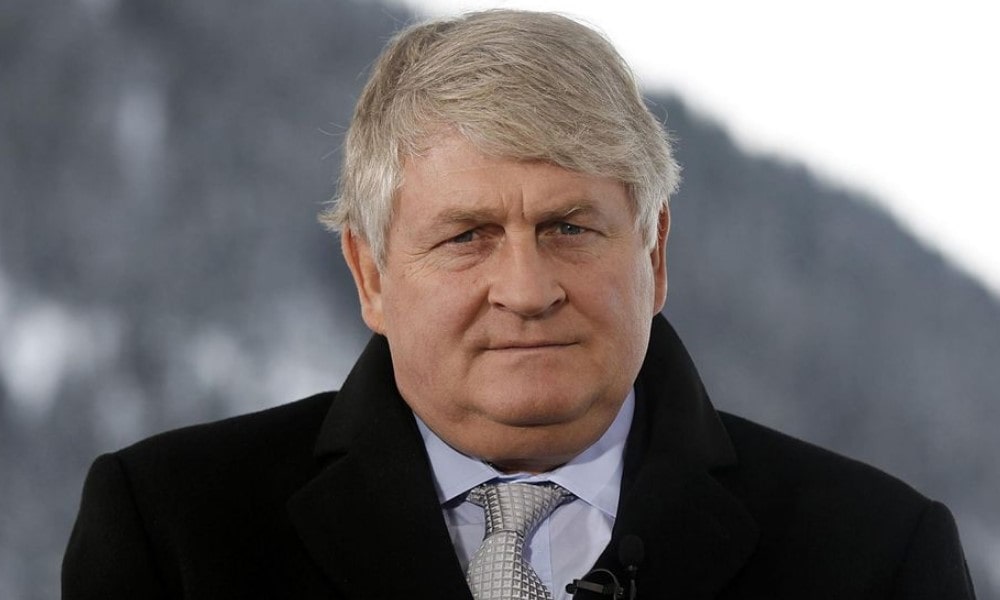
From Business Beginnings to Billionaire
Denis O’Brien didn’t just start a business — he built a telecom empire. Born in Cork, Ireland, he began his career working under Tony Ryan, the same Irish entrepreneur who backed Ryanair. But O’Brien had his own vision. In 1991, he founded Esat Telecom, Ireland’s first real competition to the state-owned Eircom. The gamble paid off. By 2000, he sold Esat to BT Group for $2.4 billion and walked away a very wealthy man.
But O’Brien wasn’t done. Instead of retiring on a yacht, he launched Digicel, a mobile telecom company aimed at emerging markets. While big corporations fought over Europe and the U.S., O’Brien saw opportunity in the Caribbean, Pacific, and Central America. By 2020, Digicel had over 14 million customers across 31 countries. Not bad for an Irish businessman who once started out as someone’s assistant.
Philanthropy & Global Influence
Making billions is one thing. Giving back is another. O’Brien poured millions into rebuilding Haiti after the 2010 earthquake, funding schools, infrastructure, and hospitals. Through the Digicel Foundation, he has built more than 150 schools, changing lives in some of the world’s poorest areas.
And he doesn’t just invest in telecom. His business empire includes media, healthcare, and even football. He owns stakes in Independent News & Media and has invested in Celtic FC, joining other Irish entrepreneurs who love football as much as business. O’Brien proves that success isn’t just about making money — it’s about creating impact.
Tony O’Reilly – From Rugby Star to Media Mogul
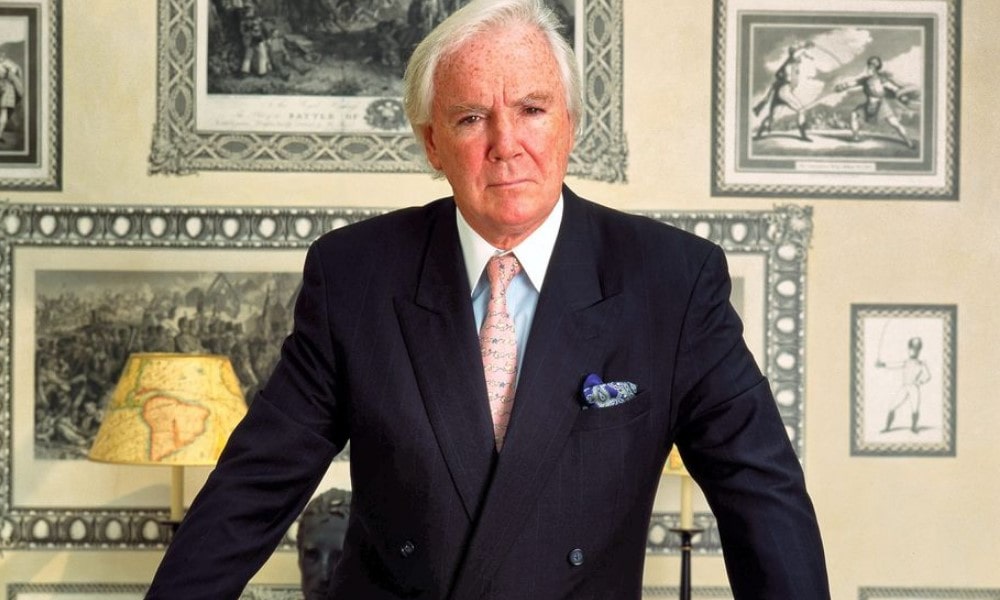
Building an Empire in Food & Media
Tony O’Reilly wasn’t just an Irish entrepreneur — he was a force of nature. Before diving into the business world, he was an international rugby star, playing for the British and Irish Lions. But sports weren’t enough. O’Reilly had bigger ambitions. He took over Heinz, turning it into a global powerhouse. Ever heard of Heinz Ketchup? That’s O’Reilly’s work. By the time he left, the company’s revenue had skyrocketed to $9 billion.
But he didn’t stop at food. O’Reilly saw media as the next frontier and took over Independent News & Media (INM), Ireland’s biggest newspaper group. Under his leadership, INM expanded across 22 countries, owning major publications in Australia, South Africa, and the UK. His business philosophy? Branding is everything. He once said, “Great brands aren’t just labels; they are symbols of trust” — and he built his empire on that belief.
A Business Downturn & Lessons Learned
Even the best Irish businessmen face hard times. O’Reilly’s biggest challenge? A billionaire rivalry with Denis O’Brien. Both wanted control over INM, but O’Brien outmaneuvered him, gradually taking over shares until O’Reilly was forced out. Then came financial struggles. Investments in Waterford Wedgwood and other ventures backfired, leaving him with over €1 billion in debt.
What’s the lesson? Resilience is key. O’Reilly took risks — some worked, some didn’t. But his impact on Irish business is undeniable. From rugby fields to boardrooms, he proved that success isn’t just about winning; it’s about playing the long game.
John & Patrick Collison – Revolutionizing Online Payments
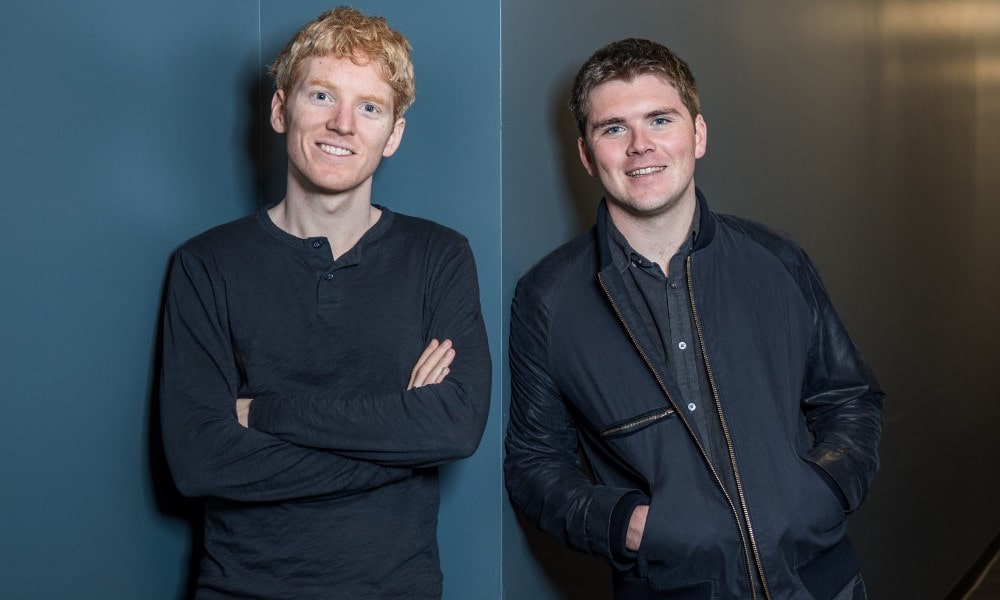
The Birth of Stripe
Two Irish entrepreneurs, John and Patrick Collison, didn’t just start a business. They changed how the internet moves money. At just 19 and 21, they launched Stripe, a fintech company that made online payments easier. Before Stripe, setting up a payment system was a nightmare — complicated, expensive, and full of red tape. They saw the problem and fixed it.
Silicon Valley loved it. Elon Musk, Peter Thiel, and Sequoia Capital jumped in as early investors. By 2016, Stripe was valued at $9 billion. Today? It’s worth $50 billion+, powering payments for companies like Amazon, Shopify, and Zoom. Not bad for two guys from County Tipperary who started coding in their teens.
The Future of Digital Payments
E-commerce is exploding, and online businesses need seamless payments more than ever. Stripe is leading the way, introducing AI-driven fraud detection, faster cross-border payments, and new banking solutions. The company now processes hundreds of billions of dollars annually.
What’s next? Crypto payments? Instant global transfers? One thing’s sure — Stripe isn’t slowing down. The Collison brothers proved that innovation, timing, and smart execution can turn an idea into a global empire. Every Irish entrepreneur dreaming of success should take notes.
Dermot Desmond – Finance, Investments & Football
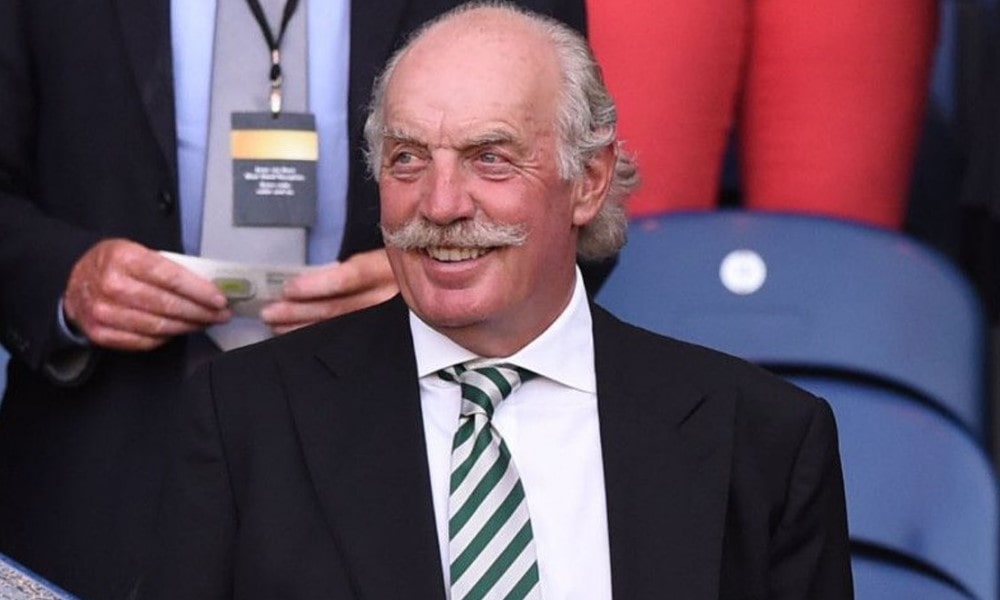
Mastering the Stock Market
Every Irish entrepreneur dreams of hitting it big, but Dermot Desmond made it reality. He built his fortune in finance, starting with NCB Stockbrokers in 1981. This wasn’t just another investment firm — it quickly became one of Ireland’s most influential financial businesses, handling major deals and growing at lightning speed.
Selling NCB for $39 million in 1994, Desmond didn’t stop. He launched International Investment & Underwriting (IIU), a private equity firm funding game-changing projects. His name carries weight in the Irish business world, from banking to technology. Some say he has a golden touch in investments — turning smart bets into massive wins.
Sports, Airports & Global Investments
Finance wasn’t enough. Desmond saw opportunities everywhere. He bought a stake in London City Airport, helping transform it into a key European hub. The result? He sold his share for a huge profit in 2006.
Then came football. In 1994, he invested in Celtic FC, turning the club into a financial powerhouse. His strategy? Smart management, strong branding, and massive fan engagement. His portfolio spans aviation, finance, sports, and more — proof that an Irish entrepreneur with vision can dominate multiple industries.
J.P. McManus – The Business of Horse Racing & Investments
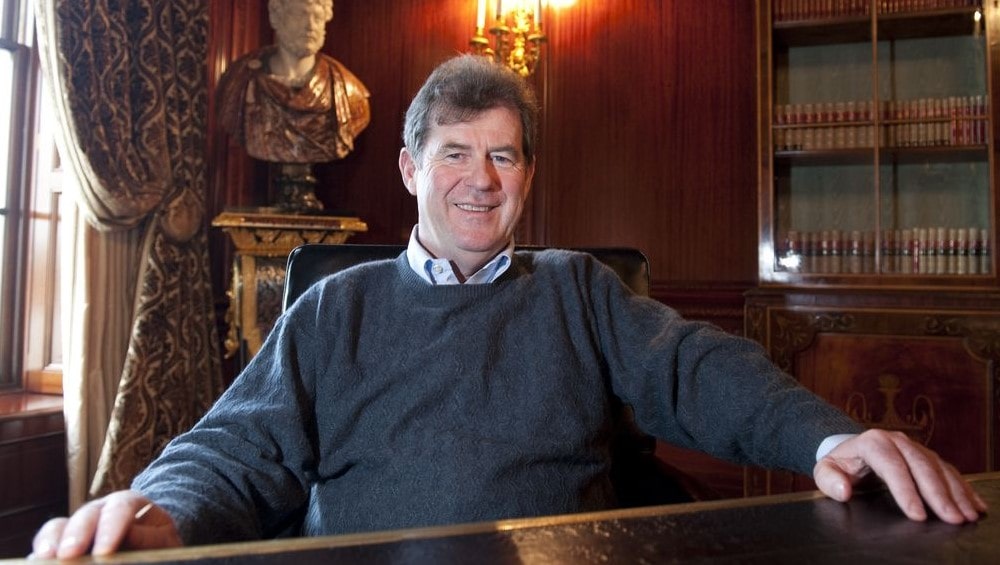
From Bookmaker to Billionaire
Some Irish entrepreneurs chase tech. Others go after finance. J.P. McManus? He built an empire in something completely different — horse racing and high-stakes betting. Starting out as a small-time bookmaker, he quickly figured out how to turn gambling into serious business.
His real fortune didn’t come from bets, though. He played the financial markets smart, making bold investments in currency trading and property. The result? A net worth estimated at over $1 billion, making him one of the richest names in Irish business.
A Passion for Sports & Philanthropy
Racing was always more than a business — it was an obsession. McManus owns hundreds of racehorses, competing in top-tier events like the Cheltenham Festival. His horses have won dozens of major races, making him a legend in the sport.
Beyond the racetrack, he’s known for giving back. Through his J.P. McManus Charitable Foundation, he’s donated millions to Irish schools, hospitals, and local communities. A businessman, a racing mogul, and a philanthropist — McManus proves that an Irish entrepreneur can mix passion with profit.
John Magnier – The Irish Entrepreneur Who Dominated Horse Breeding
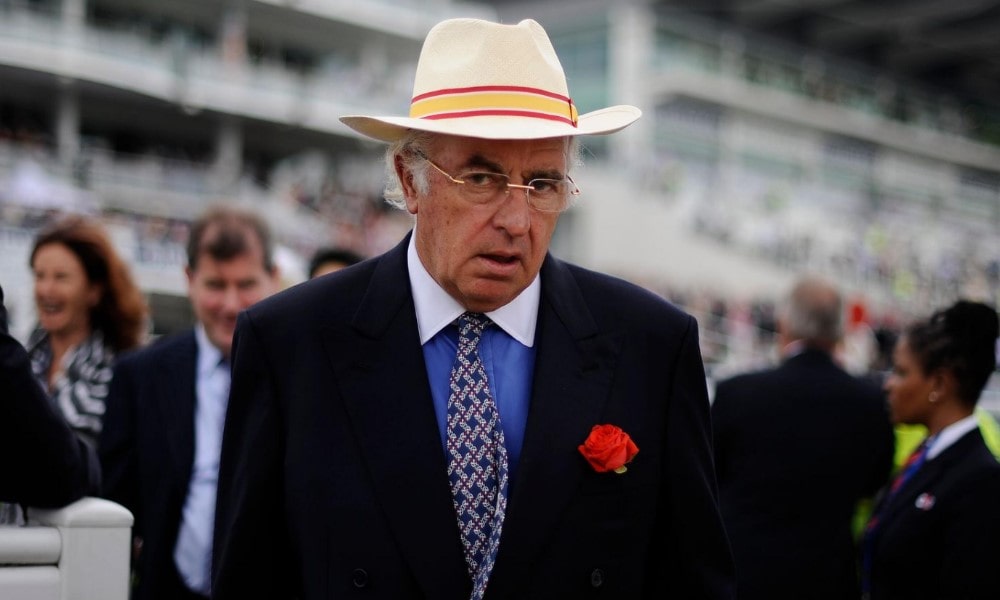
Coolmore Stud & the Global Racing Empire
Some Irish entrepreneurs build tech startups. Others make fortunes in real estate or finance. But John Magnier? He created a business empire in an industry few think about — horse breeding. His Coolmore Stud is not just successful; it’s the world leader in thoroughbred breeding.
Magnier didn’t just influence Ireland’s racing scene. His business strategy took Coolmore to the U.S., Australia, and Japan, shaping the global racing market. Ever heard of Galileo or Sadler’s Wells? These horses didn’t just win races — they built multi-million-dollar legacies in stud fees. Magnier’s approach wasn’t luck; it was entrepreneurial genius, turning elite horses into long-term investments.
Business Lessons from an Irish Entrepreneur
In horse racing, fast wins are rare. Magnier’s empire grew because he played the long game. His business mindset — patience, smart investments, and strategic partnerships — helped him dominate the industry.
What makes a successful Irish entrepreneur? Strong networks. Magnier collaborated with racing legends like Aidan O’Brien, ensuring Coolmore stayed on top. Whether in business, tech, or finance, one rule stays the same: surround yourself with the right people, and success will follow.
Sean Quinn – The Irish Entrepreneur Who Built and Lost a Fortune
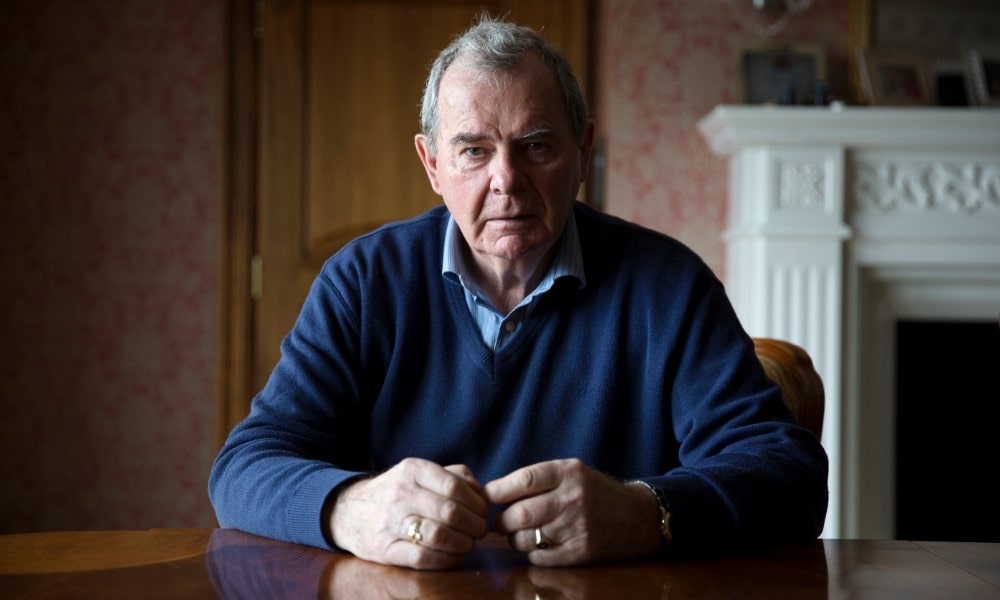
The Rise of the Quinn Group
Some Irish entrepreneurs start in tech. Sean Quinn? He began with a single quarry in County Fermanagh. That tiny business turned into the Quinn Group, a powerhouse in construction, glass manufacturing, and insurance. Quinn wasn’t born into wealth — he built his business from the ground up, proving that sharp instincts and hard work can create an empire.
At its peak, Quinn’s business empire had a €4.7 billion valuation, with assets across Ireland and beyond. He moved fast, expanding into hotels, cement production, and insurance, always taking bold risks. For years, he was Ireland’s richest entrepreneur, and his name was a symbol of self-made success.
Financial Collapse & Hard Lessons
Then came 2008. The global recession wiped out fortunes, but Quinn’s collapse was even more dramatic. His high-stakes investment in Anglo Irish Bank backfired, leading to a €2.8 billion debt. Overnight, he lost control of his empire.
What’s the lesson? Even the smartest Irish entrepreneurs can fail if they don’t balance risk and stability. Quinn’s story is a warning — business success is about calculated risks, not just bold moves.
Pat McDonagh – The Irish Entrepreneur Who Built a Fast-Food Empire
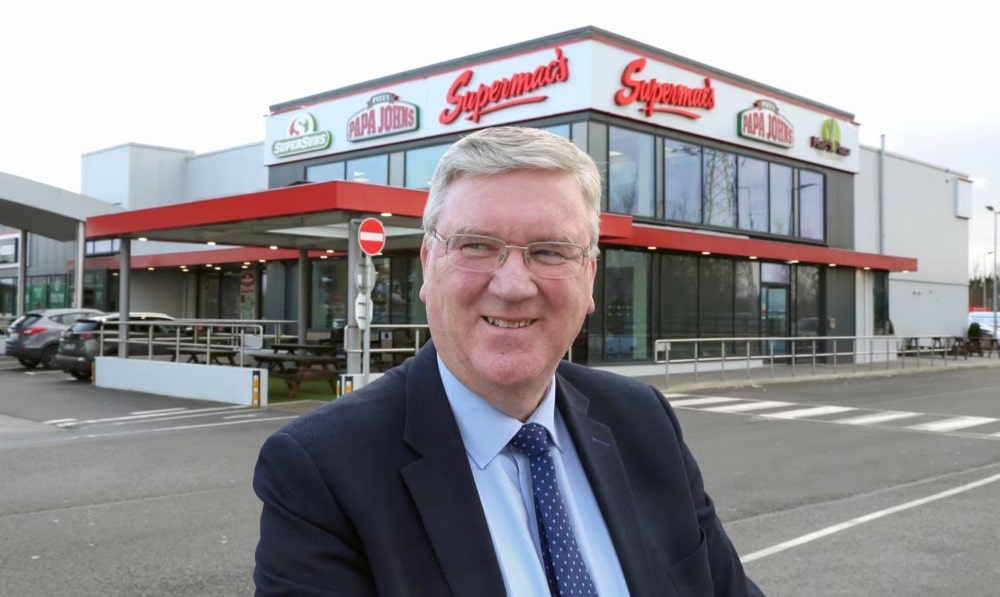
From Teaching to Business Ownership
Not every Irish entrepreneur starts with a perfect plan. Pat McDonagh? He wanted to open a pool hall in the 1970s, but local officials shut it down. Instead of giving up, he took a different route — Supermac’s was born. One small burger joint in Ballinasloe turned into Ireland’s largest fast-food chain, competing head-to-head with McDonald’s.
Supermac’s didn’t just grow — it exploded. By 2023, the company had over 120 locations, making it a true Irish business success. Unlike international brands, Supermac’s knew the local market, serving bigger portions and Irish flavors that customers actually wanted.
The Role of Branding & Expansion
Growing a restaurant empire isn’t just about selling food — it’s about staying relevant. Supermac’s nailed it by expanding beyond fast food, adding hotels and petrol stations to its portfolio. McDonagh also took legal action against McDonald’s over trademark rights — and won.
His story proves one thing: a smart Irish entrepreneur listens to the market, fights for his brand, and never backs down from a challenge.
Bobby Healy – The Irish Entrepreneur Revolutionizing Drone Delivery
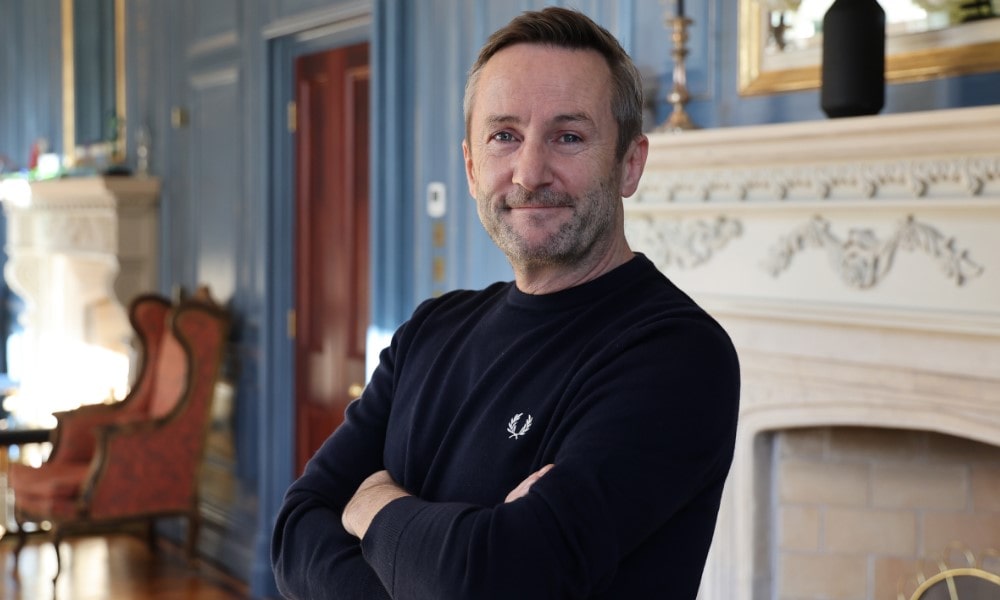
Creating Manna Drone Delivery
Bobby Healy isn’t just another Irish entrepreneur — he’s the guy pushing drone delivery into reality. Before launching Manna, he spent years in tech and aviation, helping build CarTrawler, a platform used by airlines worldwide. But food delivery? That was a whole new challenge.
Manna started with a simple idea — get food to customers in three minutes or less. And not by cars or bikes, but by autonomous drones. The project took off in Ireland, then expanded to the UK and the U.S., proving that drones could make deliveries faster, cheaper, and way cooler.
The Future of Drone Logistics
But making drones a part of everyday business isn’t easy. Regulations, weather, safety concerns — there’s a lot to figure out. Manna is tackling these head-on, working with local governments and testing in real communities.
If Healy’s vision works, drone delivery won’t be a futuristic dream. It’ll be the new normal for e-commerce, changing how we order everything — from Starbucks to medicine. And knowing how Irish entrepreneurs love to innovate, this is just the beginning.
Conclusion
Success doesn’t happen overnight, and these Irish entrepreneurs prove it. From disrupting aviation and fintech to building fast-food empires, they didn’t wait for opportunities — they created them. Some took massive risks. Others saw gaps in the market and filled them before anyone else.
What’s the takeaway? Innovation, persistence, and adaptability. Whether launching a global brand or running a small business, the rules are the same — be bold, think ahead, and never stop learning.
Ireland keeps producing entrepreneurs who challenge industries. Maybe the next big name in tech, finance, or e-commerce is reading this right now. Who knows? Could be you.
